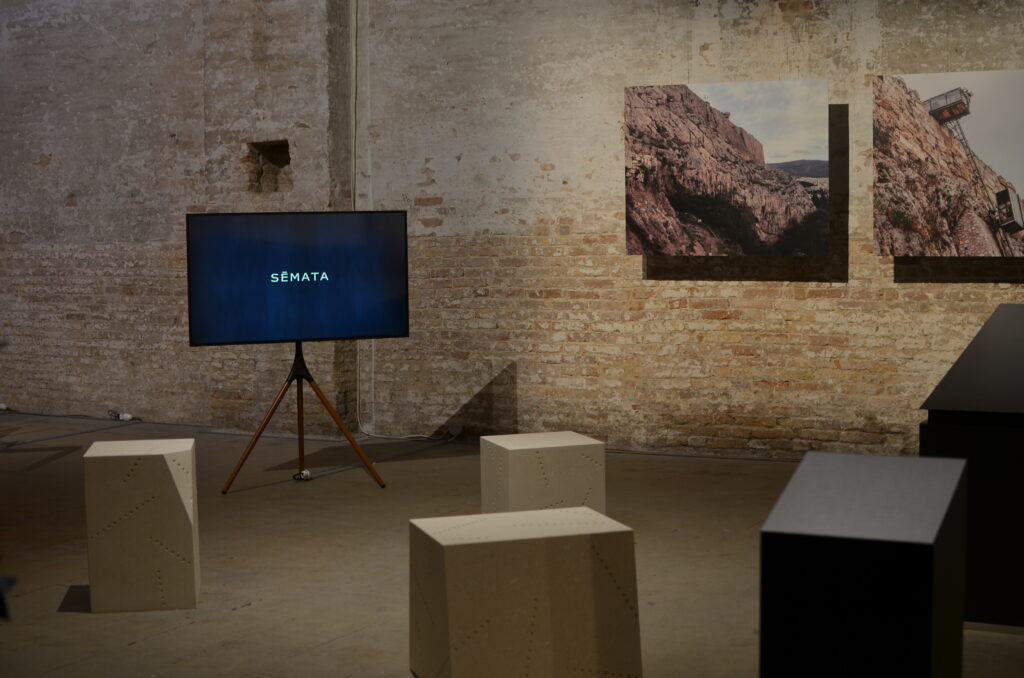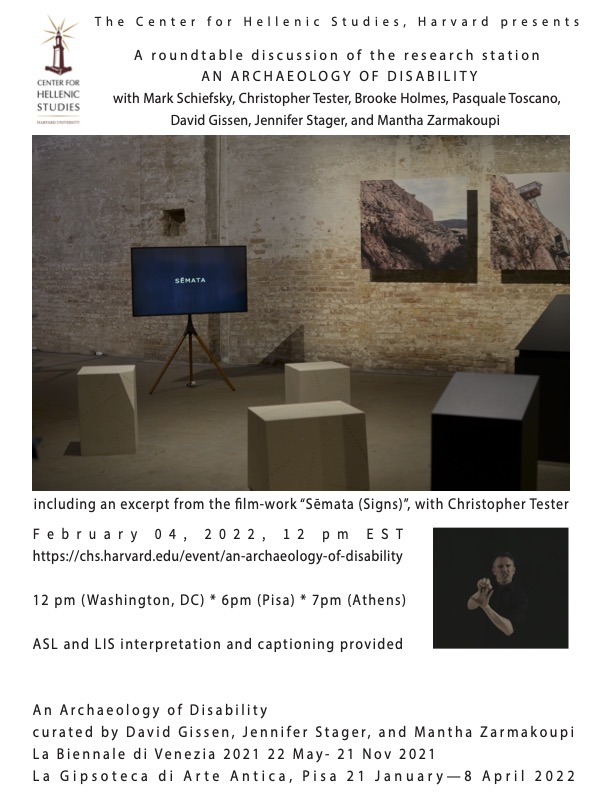Date: Friday, February 4, 2022
Time: 12pm EDT, 6PM CET, 7PM EET

Join us for a roundtable discussion of the research station “An Archaeology of Disability,” curated by David Gissen, Jennifer Stager, and Mantha Zarmakoupi for the Venice Biennale Architettura 2021 and opening on January 21, 2022 at La Gipsoteca di Arte Antica, Pisa.
The accessibility of historic architecture not only determines who can experience the past, but it also informs how we think about disabled people as part of history. This installation presents an experiment in the historic reconstruction of the Acropolis in Athens. Our reconstructions recover ideas about impairment at one of the most canonical, influential, and notoriously inaccessible historic architectural sites.
This event will have ASL and LIS interpretation.
Outline of the Event
Opening remarks by Mark Schiefsky, Director of the Center for Hellenic Studies
Introduction to the panel and “An Archaeology of Disability”
Screening of an excerpt of film-work “Sēmata” from the installation
Discussion with Christopher Tester (Gallaudet), Pasquale Toscano (Princeton), Brooke Holmes (Princeton), David Gissen (The New School), Jennifer Stager (Johns Hopkins), and Mantha Zarmakoupi (Penn).
About the Panelists
David Gissen is a disabled author and designer based in New York City. His book, The Architecture of Disability, will be published in the fall of 2022 by The University of Minnesota Press.
Brooke Holmes teaches at Princeton University, where she previously directed the Interdisciplinary Doctoral Program in the Humanities and served as the PI on the “Postclassicisms” project from 2012-2020. Her research and teaching range widely over the history of the body and nature, Greek literature and philosophy, classical reception, and critical theory, extending in recent years into curatorial work, including her work on the exhibition “Liquid Antiquity,” and writing about art.
Jennifer Stager is a writer and art historian based in Baltimore at Johns Hopkins. Her first book, Seeing Color in Classical Art, comes out this year, as does a book of essays co-written with Leila Easa, Public Feminism in Times of Crisis: from Sappho’s Fragments to Viral Hashtags.
Christopher Tester, who is deaf, is an assistant professor at Gallaudet University in the department of interpretation and translation. He works as an interpreter and an actor and is often involved in Deaf theatre and also knows American Sign Language, British Sign Language and International Sign.
Pasquale Toscano is a disabled graduate student at Princeton University, where he specializes in early modern English literature, heroic poetry, and disability studies. His writing has appeared in publications such as The New York Times, The Atlantic, and the Classical Receptions Journal, and his dissertation will focus on dynamics of disability in the epic tradition from antiquity to Phillis Wheatley.
Mantha Zarmakoupi works across architectural design, history and theory and classical archaeology, and is the Williams Assistant Professor in Roman architecture in the Department of History of Art at the University of Pennsylvania. She has published widely on Roman luxury villas, as well as on the architecture, harbor infrastructure and urban development of late Hellenistic Delos. Her next book, Roman Landscape: Eco-critical Approaches to Early Imperial Italy, will appear next year.

